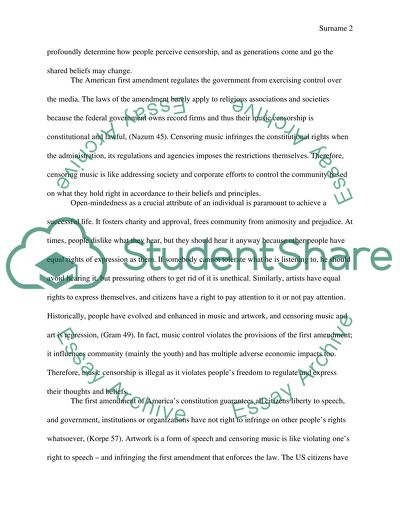Cite this document
(“Anti Music Censorship Research Paper Example | Topics and Well Written Essays - 1500 words”, n.d.)
Anti Music Censorship Research Paper Example | Topics and Well Written Essays - 1500 words. Retrieved from https://studentshare.org/english/1465536-anti-music-censorship
Anti Music Censorship Research Paper Example | Topics and Well Written Essays - 1500 words. Retrieved from https://studentshare.org/english/1465536-anti-music-censorship
(Anti Music Censorship Research Paper Example | Topics and Well Written Essays - 1500 Words)
Anti Music Censorship Research Paper Example | Topics and Well Written Essays - 1500 Words. https://studentshare.org/english/1465536-anti-music-censorship.
Anti Music Censorship Research Paper Example | Topics and Well Written Essays - 1500 Words. https://studentshare.org/english/1465536-anti-music-censorship.
“Anti Music Censorship Research Paper Example | Topics and Well Written Essays - 1500 Words”, n.d. https://studentshare.org/english/1465536-anti-music-censorship.


